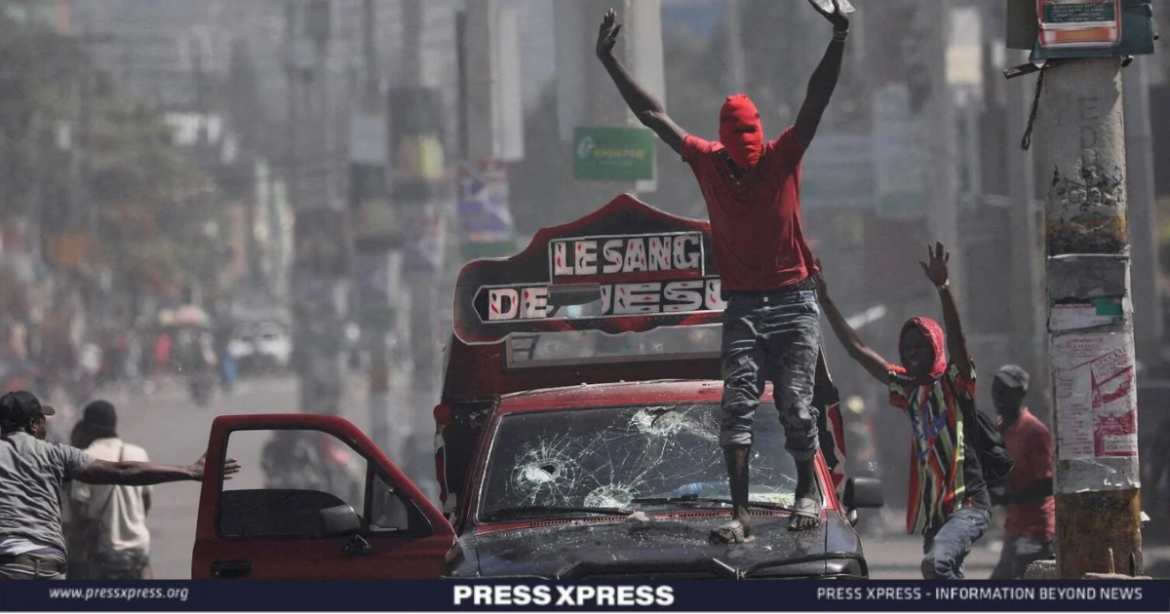Key Highlights
- The deaths of at least 10 individuals amidst the chaos prompt Haiti’s government to declare a 72-hour state of emergency and enforce a curfew
- The nation contends with a multifaceted humanitarian crisis fueled by social, political, and environmental challenges, including natural disasters and rising gang violence
- International observers closely watch Haiti’s escalating violence and instability, signaling deep concern within the global community
Reports from media outlets on Monday (4 March) reveal that a mass escape from Haiti’s largest prison in Port-au-Prince has resulted in the deaths of at least 10 individuals. This alarming development has prompted the government to institute a 72-hour state of emergency and impose a curfew to capture the fugitives.
You can also read: China’s Economy in 2023: Impacts on Global Order
According to media sources, on Sunday (3 March), an armed gang launched an assault on the prison, leading to the liberation of an unspecified number of inmates. Additionally, it has been reported that another prison in the capital was also targeted by the assailants.
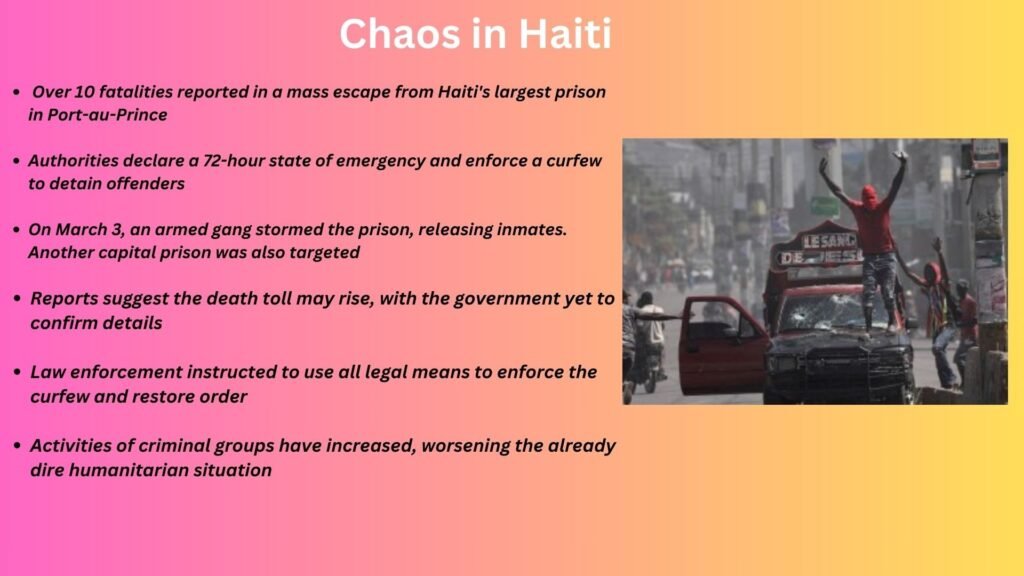
While the exact number of casualties remains unconfirmed by the Haitian government, the death toll is expected to rise. The Spanish news agency EFE indicates that the situation remains fluid, with authorities yet to release official statements regarding the incident. Nevertheless, law enforcement agencies have been instructed to utilize all legal means to enforce the newly imposed curfew.
As Haiti grapples with these multifaceted challenges, urgent action is required to restore stability and address the underlying issues plaguing the country. Efforts to enhance security, strengthen governance, and provide assistance to those affected by the crisis are crucial steps towards achieving lasting peace and prosperity in Haiti.
The Shocking Jailbreak
The most shocking development occurred on Saturday night when armed assailants stormed the National Penitentiary, allowing nearly all of its estimated 4,000 inmates to escape. Scenes of chaos and devastation greeted authorities as they discovered the facility empty, with no guards in sight and bodies strewn across the premises.
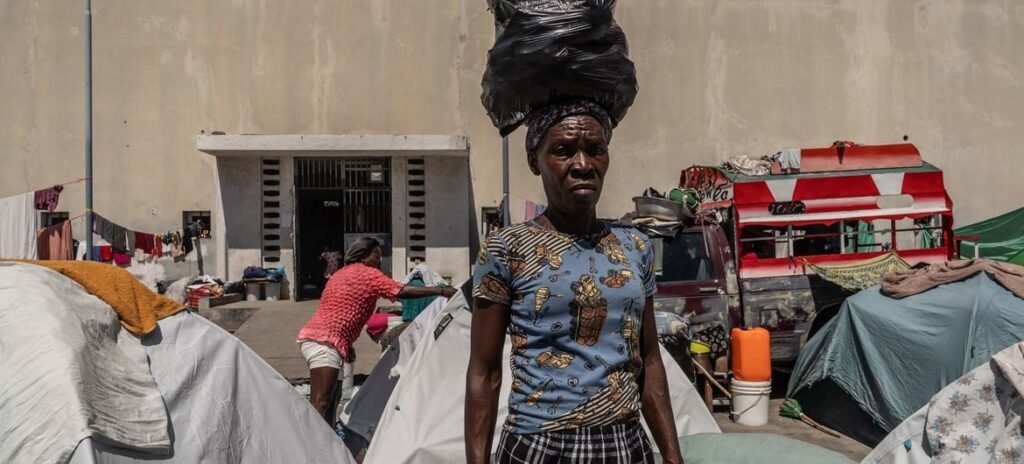
A second prison in Port-au-Prince, housing around 1,400 inmates, also fell victim to the onslaught, further exacerbating the crisis.
Reports suggest that fewer than 100 inmates remain behind bars, including 18 former Colombian soldiers implicated in the assassination of President Jovenel Moïse in July 2021. Desperate pleas for help from these individuals underscored the grave humanitarian concerns amid the chaos.
The nation has witnessed a surge in criminal activities, exacerbating an already dire humanitarian situation exacerbated by natural disasters such as severe floods, torrential rains, and earthquakes.
A Nation in Turmoil
The boldness of these assaults has reverberated across Haiti, as even once-unthinkable targets like the Central Bank have fallen victim to the gangs’ brazen tactics. Gunfire has become a haunting presence in numerous neighborhoods, exacerbating the unease already felt by residents grappling with disruptions to internet services.
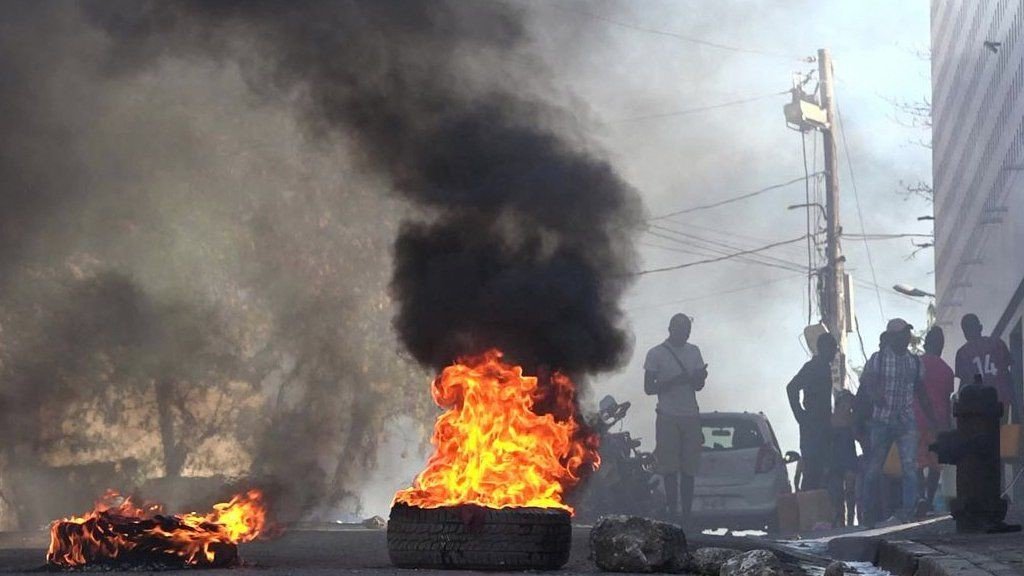
Haiti’s already overstretched security forces now find themselves in a precarious position, struggling to quell the escalating violence. With reports indicating that gangs control a staggering 80% of Port-au-Prince, the government faces a daunting challenge in restoring order and ensuring the safety of its citizens.
During this turmoil, Prime Minister Ariel Henry, thrust into leadership following President Moïse’s assassination, confronts the monumental task of navigating Haiti through this crisis. However, plans for vital parliamentary and presidential elections, essential for reestablishing democratic governance, have been repeatedly deferred, exacerbating the nation’s myriad woes.
Human rights deteriorating as gang violence spreads
In January, the UN reported that over 8,400 individuals fell victim to Haiti’s gang-related violence in the previous year, encompassing fatalities, injuries, and abductions—an alarming surge compared to the figures recorded in 2022.
The widespread outrage over the staggering levels of brutality, compounded by the political instability, has sparked numerous protests against the government. Demonstrators have voiced their demands for the prime minister’s resignation as they condemn the dire state of affairs gripping the nation.
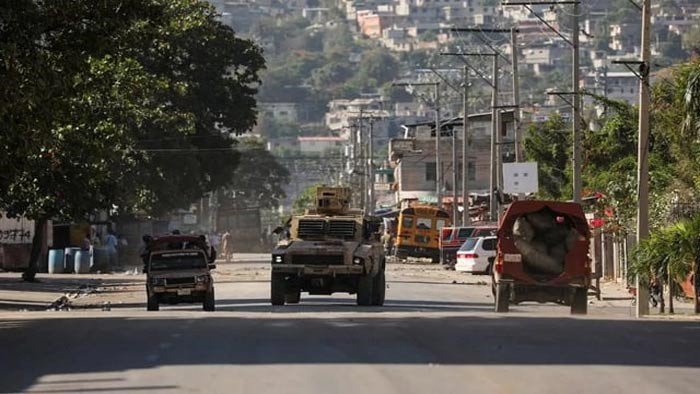
Economy
Haiti, the poorest country in the Western Hemisphere, faces profound economic challenges with widespread poverty and high unemployment rates. Agriculture, the dominant sector, struggles to meet domestic demand, leading to significant food imports. Most Haitians work in the informal sector, engaging in casual jobs, self-employment, or even illegal activities. Remittances from Haitians abroad constitute a significant portion of the economy, surpassing foreign aid and investment. Additionally, Haiti serves as a major transit point for drug trafficking between South America and the United States.
Worldwide Past Jailbreaking Incidents
Major incidents of jailbreaking have historically captured global attention due to their dramatic and often violent nature. These incidents, marked by mass escapes and daring feats, highlight the vulnerabilities within prison systems and the challenges faced by authorities in maintaining security. Some notable examples include:
Alcatraz Escape (1962):
One of the most famous prison breaks in history occurred at Alcatraz Federal Penitentiary, located on an island in San Francisco Bay. Three inmates, Frank Morris and brothers John and Clarence Anglin, orchestrated an elaborate plan involving homemade tools and a raft crafted from raincoats. Despite a massive manhunt, the trio managed to escape the supposedly “inescapable” prison, although their fate remains unknown.
Maze Prison Escape (1983):
In Northern Ireland, during the height of the Troubles, 38 Irish Republican Army (IRA) prisoners escaped from the Maze Prison in County Antrim. Using smuggled guns and knives, the inmates overpowered guards and made their way through a maze of corridors and security fences. The escape resulted in the death of a prison officer and the largest prison break in British history.
Dannemora Prison Escape (2015):
In upstate New York, two convicted murderers, Richard Matt and David Sweat, broke out of Clinton Correctional Facility, a maximum-security prison. With assistance from a prison employee, the duo utilized power tools to cut through steel walls and pipes before emerging from a manhole outside the prison perimeter. The ensuing weeks-long manhunt captivated the nation before both escapees were eventually recaptured, with Matt killed and Sweat wounded.
Brazil Prison Massacre and Escape (2017):
In Brazil, a deadly riot erupted at the Anísio Jobim Prison Complex in Manaus, resulting in the deaths of over 50 inmates. Amidst the chaos, a group of prisoners took advantage of the situation and fled the facility. The violence highlighted the dire conditions within Brazil’s overcrowded and understaffed prisons, as well as the influence of powerful criminal factions operating behind bars.
Pul-e-Charkhi Prison Siege (2021):
In Afghanistan, the Taliban launched a coordinated attack on Pul-e-Charkhi Prison, one of the country’s largest detention facilities. The assault, which included suicide bombings and gunmen, led to a chaotic shootout between insurgents and security forces. While the exact number of escapees remains unclear, the incident underscored the Taliban’s determination to free their comrades and destabilize the Afghan government.
These incidents serve as stark reminders of the challenges posed by prison security and the ingenuity of those seeking to break free from confinement. While some escapees are eventually recaptured, others remain at large, perpetuating a sense of intrigue and mystery surrounding their fates.

